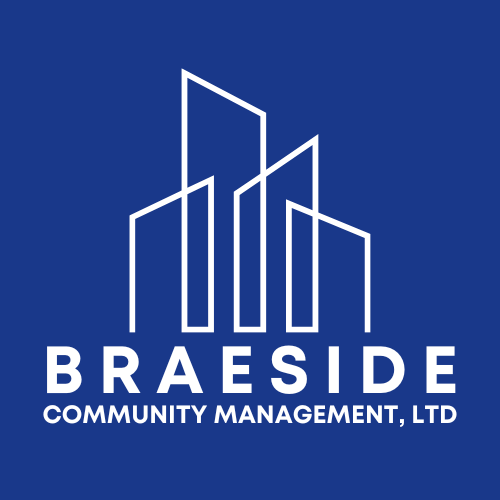About Us
Frequently Asked Questions
Do I need homeowner’s insurance? Where do I purchase homeowner’s insurance?
Typical Association Declaration and By-Laws as well as the Illinois Condominium Property Act obligate homeowners to obtain insurance on the contents of their unit and contents of limited common elements serving their unit. Most insurance companies provide Condominium Unit Owners insurance, typically referred to as an HO-6 policy
While the Condominium Association is responsible to repair and maintain the common elements, unit owners are typically responsible to repair and maintain appliances, fixtures and plumbing on either side of the drywall that exclusively serve their unit. Examples include: horizontal and vertical pipes that bring water to sinks, showers, bathtubs, toilets, ice makers, water heaters, washing machines, air conditioners, humidifiers etc.. Unit owners are also responsible for leaks coming from overflowing bathtubs, showers, toilets, washing machines, deteriorated caulking around bathtubs, deteriorated toilet gaskets, etc
Although water damage is the most common type of damage, unit owners are responsible for any damage that may result from a malfunction or accident involving fixtures and equipment within their unit.
Many Condominium dwellers believe that, because their Association buys a master insurance program, that they do not need to buy their own personal insurance. THIS IS NOT TRUE. As a unit owner you need to insure all of your personal property which includes:
1) Interior decoration (finishing paint, wallpaper, paneling, window treatments etc.)
2) Floor coverings (carpet, tile, parquet, hardwood, marble, linoleum, etc.)
3) Household contents (furnishings, clothing, dishes, etc.)
4) Storage locker contents
5) Non-built-in appliances (refrigerators, stoves, washer and dryers, etc.)
6) Personal liability for you and your unit
7) Worker’s Compensation insurance for any domestic help.
When purchasing a unit owner policy it is recommended that you purchase an “All Risk” policy which provides extremely broad coverage. In addition, finding a policy that offers a combined limit for personal property, improvements and betterment’s and decorating items may reduce the chances of your policy exhausting limits.
In addition, If a loss is claimed against the Association’s Master Policy for repairs to limited and common elements the Illinois Condominium Property Act allows the Association to assess the amount of the Association’s deductible to the homeowners causing or benefiting from the repairs. Many Associations have significant deductibles many are in the $5,000 to $10,000 range. Contact your insurance agent to review your policy and ensure adequate coverage are provided
You are encouraged to obtain your own insurance policy. In the event you do not, the Illinois Condominium Property Act states “If the unit owner does not purchase or produce evidence of insurance required by the board, the directors may purchase the insurance coverage and charge the premium cost back to the unit owner. In no event is the board liable to any person either with regard to its decision not to purchase the insurance, or with regard to the timing of its purchase of the insurance or amounts or types of coverage obtained.”
What are some selling/refinancing considerations?
Our goal is to make the selling/refinancing process as easy as possible. Here are some important points to help you through this process.
To be prepared for a closing seller needs to have the following documents available to the prospective purchaser. This is typically referred to as a 22.1 Disclosure request:
(1) A copy of the Declaration, by‑laws, other condominium instruments and any rules and regulations.
(2) A statement of any liens, including a statement of the account of the unit setting forth the amounts of unpaid assessments and other charges due and owing as authorized and limited by the provisions of Section 9 of this Act or the condominium instruments.
(3) A statement of any capital expenditures anticipated by the unit owner’s association within the current or succeeding two fiscal years.
(4) A statement of the status and amount of any reserve for replacement fund and any portion of such fund earmarked for any specified project by the Board of Managers.
(5) A copy of the statement of financial condition of the unit owner’s association for the last fiscal year for which such statement is available.
(6) A statement of the status of any pending suits or judgments in which the unit owner’s association is a party.
(7) A statement setting forth what insurance coverage is provided for all unit owners by the unit owner’s association.
(8) A statement that any improvements or alterations made to the unit, or the limited common elements assigned thereto, by the prior unit owner are in good faith believed to be in compliance with the condominium instruments.
In addition to the above requirements the Association’s Declaration of Condominium and Bylaws may require a Right of First Refusal and other documentation prior to closing.
Market conditions have had a profound impact on condominium sales. While the Illinois Condominium Property Act addresses specific document requirements, many lenders are requiring more thorough and detailed questionnaires.
If you are contemplating a sale or refinance we recommend you inventory documents in your possession then contact our Sale/Refinance Specialist, Joan Metz by email at closings@bcmltd.com. Joan will assist you in obtaining necessary documents and discuss the process with you.
We encourage owners to contact us at the beginning of the process to avoid unnecessary delays and costs.
What if I want to make renovations to my unit?
The Condominium Declarations provide direction as to what your responsibilities are to the association in the event you want to make renovations to your unit.
Prior to the commencement of any renovation or structural work you should check to see what the process is for your association to review and approve such work. Many associations provide homeowners with a form to complete and submit to the management company (and then to the board) detailing the extent of work, modifications to a unit, whether work be inside a unit or the exterior of a building.
Check with your Property Manager well in advance and during your planning stages to avoid any confusion and unnecessary costs relative to any unit renovations.
Can I have a pet in my unit?
Some associations are pet restricted, while others have very specific rules and regulations regarding pets or even people visiting the building who bring pets. Before monetarily and emotionally investing in a pet contact your Property Manager and find out whether your building allows pets, any restrictions on kind or size of a pet, and become familiar with pet owner responsibilities.
Can I rent my unit?
You should first check the association’s declarations to determine whether there are any applicable rental restrictions. Every association is different: some allow rentals, some restrict the number to a percent of the total units, and some prohibit rentals. Those associations allowing rentals may have very specific requirements about lease terms, processes for reviewing a lease and tenant application, and provisions for the association/management company to have complete paperwork on every lease and occupant.
You can always contact your Property Manager to obtain information about leasing restrictions and rental processing.
Who do I contact if I go out of town?
It is good advice to let someone in your building or the management company know if you will be out of town for an extended period of time. Access to your unit may be necessary in the event of an emergency. Complete and send a Homeowner Vacation Form to your Property Manager prior to your departure and notify them upon your return. Management should have at least two emergency contacts that have authorized access to your unit.



